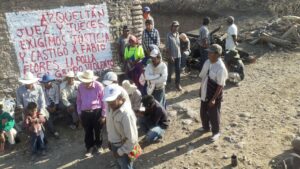Mexico, May 25, 2020
We didn’t want to have to say it, but we told you so.
Two weeks ago, ever since the agreement regarding Reliability, Safety, Continuity, and Quality in the National Electric System was published in the Official Diary of the Federation by the Ministry of Energy, there has been constant discussion regarding renewable energy. Basically what this document says (which requires further analysis, because no, it is not the solution to anything, nor does it stop the advance of renewables in Mexico) is that now SENER is taking control of the National Electric system, along with the Energy Regulatory Commission and the Federal Electricity Commission. It says they will “take charge of transmission and distribution” (didn’t they do this already?), implementing a new regulation. This has made the big companies cry because these “new adjustments require tests to complete, especially on the part of the wind farms and the photovoltaic parks,” as well as taxes to pay.
Faster than Speedy Gonzales, the large renewable consortia took organized legal action against this agreement, and a few days ago the governors of seven states agreed to stop this agreement as well, and the entire national and international debate turned into another political and media circus between who is stronger, has better arguments, and better defends themselves, leaving aside the critical and in-depth analysis of this situation. That is why we didn’t want to say it, but we are going to say it anyway, “We told you so!”…
As the Assembly of Indigenous Peoples of the Isthmus in Defense of Land and Territory (APIIDTT), since our pre-founding in 2006, motivated by the effort to cancel predatory contracts carried out with deceit and abuse by companies against peasants, we have consistently denounced the conditions in which private wind energy companies have invaded the territory of our peoples in the region, through the signing of predatory contracts, coercion, corruption and violence. Much of the renewable energy generated in our country follows these same characteristic patterns of intensive and extractive industries.
Dispossessing indigenous communities of their territory in South-Southeast Mexico has been key to drawing a panorama of environmental responsibility for a long list of predatory national and transnational corporations.
In 2015, 20 of the 29 parks in the State of Oaxaca, which (in that year) counted on power generation permits granted by the Energy Regulatory Commission, belong to corporations from the Spanish state (PRENEAL, Acciona, Gamesa, Gas Natural, Renovalia Energy, EYRA, Acciona, Iberdrola, and Peñoles); 3 from France (EDF); 1 from Italy (ENEL); and 1 from the USA (City Express).
Two parks belong to Mexican institutions, the smallest of 21.9 GWh/year and 3 wind turbines is for the research purposes of the Electrical Research Institute; and a park of 5 wind turbines (42.05 GWh/year) that supplies power to different fields and the military buildings of SEDENA in the country. In total from these parts, all are located on communally owned lands, 18 on the ejidos of La Venta, La Ventosa, Ingenio Santo Domingo, and La Mata, and 10 on communal lands (Juchitán, Espinal, and Unión Hidalgo) and one project, belonging to the Ministry of National Defense, corresponds to expropriated lands of the communal origin from the Puente Madera community, San Blas Atempa.
The investment for these projects totaled $6,211,500,000 (six billion, two-hundred and eleven million, five hundred thousand dollars) in less than twenty years and the production authorization of 11,249.47 GWh/year, distributed in 1,915 wind turbines; this without counting the Wind Farm of Del Sur Park (the largest on the continent) that has been in operation since last year.
In contrast, a study published in 2016 by Oxfam and Educa shows that despite the investment (or because of it) the Isthmus region shows an increase in the wealth distribution gap and cracks in community cohesion, and that it does not reflect the well-being that these investments promised, together with a series of irregularities related to land tenure, private control over a public good like energy, the absence of a fiscal contribution by corporations to the municipalities, and the constant violations of collective and indigenous rights.
As APIIDTT, since 2009 we have been part of the National Network of Civil Resistance (RNRC), a process of the articulation of communities and organizations made up of 15 organizations from 8 states of the Republic in the fight for the defense of territory, the constitutional recognition of electricity as a human right, against high tariffs, for a fixed and fair tariff, and for the participatory construction of an ecological, social, communal, and popular energy transition, from the autonomous self-generation of electricity in the hands of the people and for the people, not for large corporations. It is not green energy if it is from large corporations and less so when these these large corporations are the ones that pollute and destroy other geographies, as is the case of the Grupo México and Grupo Peñoles wind farms that were installed on the Oaxacan Isthmus, both known mining consortia.
Fossil fuels are no longer an option, nor is renewable energy as a commodity in the hands of transnational corporations if we want to mitigate this climate crisis. We insist that we all have to work on the participatory construction towards the transition for ecological, social, community, and popular energy.
Our fight is for a dignified life in harmony with nature. Let’s defend what is ours because it belongs to everyone and should be for future generations!
From the free winds of the Isthmus of Tehuantepec, Oaxaca:
Assembly of Indigenous Peoples of the Isthmus in Defense of Land and Territory
(APIIDTT) 05/25/2020
Original communiqué:
https://www.congresonacionalindigena.org/2020/05/27/comunicado-sobre-el-actual-debate-de-las-energias-renovables-en-mexico


